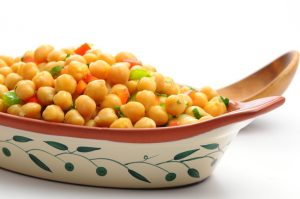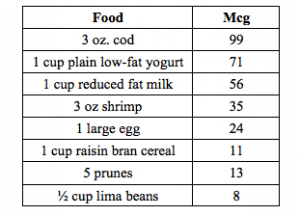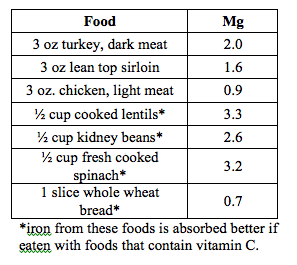 You probably know what to eat to get calcium, iron, vitamin C and a few other nutrients, but do you know about vitamin B6 or iodine?
You probably know what to eat to get calcium, iron, vitamin C and a few other nutrients, but do you know about vitamin B6 or iodine?
Based on a new CDC report on nutrient status in the U.S. (as reported in yesterday’s Cancer Research Update), most Americans are getting enough vitamins and minerals, but on average, around 10% are low in Vitamin B6 and vitamin D, and iron deficiency is higher for children and premenopausal women. Women ages 20-39 had iodine levels that just barely met adequate intake.
But don’t rush out and get supplements – you can meet your needs for these nutrients through foods and in doing so can get other important nutrients as well as cancer-fighting compounds.

Vitamin B6 crystals
Vitamin B6 is involved in more than 100 enzyme reactions in the body – mostly related to protein metabolism. It also plays a role in prenatal and infant brain development.
The Daily Value (reference value for the nutrition facts label) is 2 mg for adults and children over four. Here are some good sources that fit into a cancer-protective diet:

Iodine is a mineral needed to make thyroid hormones which control metabolism. It is also important for proper bone and brain development during pregnancy and infancy, so it is especially important for pregnant women and infants.
Daily Value is 150 mcg for adults and children 4 and older. However, levels needed for pregnant women are 220 mcg and lactating women are 290 mcg.
Good sources that fit into a cancer-protective diet:

Iron is a mineral and a component of the protein, hemoglobin that helps deliver oxygen to cells.
The Daily Value is 18 mg. Here are some good sources that fit into a cancer-protective diet:

Vitamin D: We’ve written about vitamin D and good food sources here.
Looking for recipes to for any of these foods? Check out the AICR Test Kitchen for easy and delicious cancer-fighting recipes.





